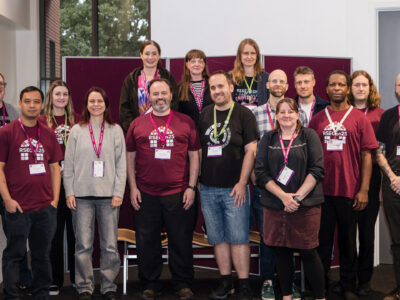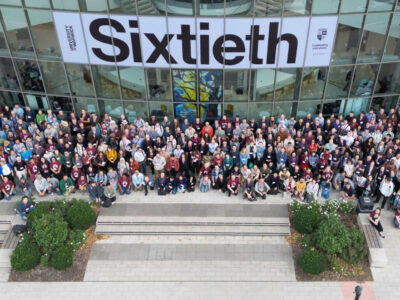Pilot Mentoring Programme
Launch date: 21st September 2021 at this SeptembRSE Session. View the video of the launch at https://youtu.be/U98d11Gcyzg?t=1975.
Apply now
Applications for mentees have now closed but we are still looking for mentors! You can sign up as a mentor at https://bit.ly/3EzERVV.
About the programme
The Society is really excited to announce that we’re organising our first pilot mentoring programme and we’re launching it on the 21st September during SeptembRSE. We are looking for mentors and mentees to join the programme.
Key dates
- 21st September: matching surveys open for mentors and mentees
- 12th October: deadline to fill out matching surveys
- First week in November: kickoff
Structure
- Length: Initially the mentoring programme will run and be supported for 9 months but some mentoring relationships may continue after this period if they wish to.
- Size: this year we are launching a pilot supporting up to 20 mentees with plans to expand next year based on your feedback
- Topics: non-technical mentoring on topics such as personal development, communication, leadership and career direction. Will not cover help with programming
- Contact hours: one-on-one mentoring sessions every 4-6 weeks, group sessions for mentees every 2-3 months
- Training and guidance for both mentors and mentees is included
- Requirements to join: You must be a Society member to sign up as a mentee. You can become a member at https://society-rse.org/join-us/.
About mentoring
Mentoring is a developmental dialogue between two people and can be a powerful developmental relationship. It is a process of ongoing support and development, which can tackle issues and problems identified by the mentee. Anybody at any stage of their life or career can benefit from having a mentor, whether it is deep personalised learning with someone with substantially more experience or having a sounding board with a peer.
Often individuals can benefit from having more than one mentor in their life if they are going through a period of intense change. Mentoring taps into a basic instinct most people share – the desire to pass on their learning or to support development and help another person fulfil their potential.
Mentoring is also a confidential, offline (not with your line manager) partnership between two people based on understanding and trust. Its chief aim is to build on self-reliance and self-confidence in the mentee. It is a positive, developmental relationship which is driven primarily by the mentee, but it is also a two-way learning relationship and an effective mentor will learn so much from the relationship as well.
Training and support to both mentors and mentees will all be delivered through interactive online briefings.
What are the characteristics of Developmental Mentoring?
- A need by the mentee to achieve some form of change – for example, in their ability, their understanding, or their circumstances
- A high level of trust and openness, which allows mentor and mentee to address difficult and sometimes uncomfortable issues
- Being out of the authority line – effective mentoring relationships usually require the mentor to have little, if any, power over the mentee, or direct interest in their success
- Generosity on the part of the mentor, in their time, energy, interest in the development of someone else
- Recognition of the value of learning together, even though mentor and mentee may have very different levels of experience.
- It is a two-way learning relationship with a good mentor often learning as much as their mentee.
Roles of a Mentor
- Commitment is vital
- Help identify and address the mentee’s development needs
- Clarify the mentee’s expectations and your own right from the start
- Support the mentee towards goal achievement
- Have regular mentoring sessions with your mentee, show respect and don’t cancel sessions
- Share your knowledge and personal experiences with your mentee where it is relevant and with their permission
- Empower your mentee – don’t give them solutions, ask questions to help them reach their own solutions
Roles of a Mentee
- Have clarity as to what both your expectations of the relationship are from the beginning
- Take ownership for yourself and your future – arrange the mentoring sessions
- Have a positive attitude towards mentoring and development
- Be open to feedback from your mentor and their ideas/ suggestions
- Have regular mentoring sessions with your mentor, show respect and don’t cancel sessions
- Keep a mentoring journal, reflect on and record key lessons learned and most importantly, ways to apply learning
We’re very pleased to be partnering with Coach Mentoring who are specialists in mentoring programmes with a wealth of experience and expertise to lead us through this pilot programme. We’ve been really impressed with Coach Mentoring and are looking forward to working with them more during the next 12 months.





